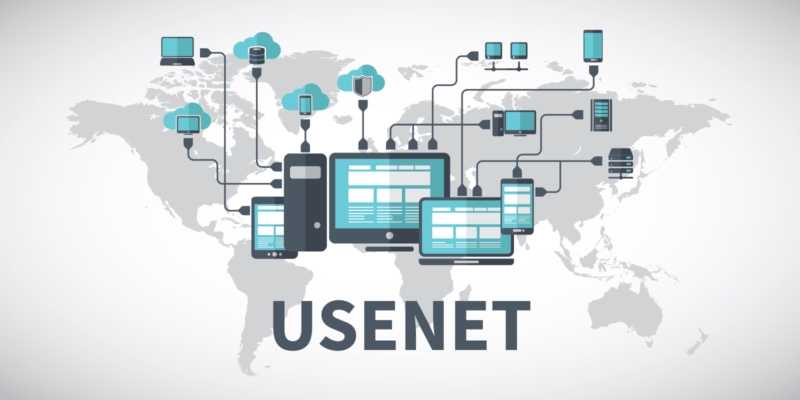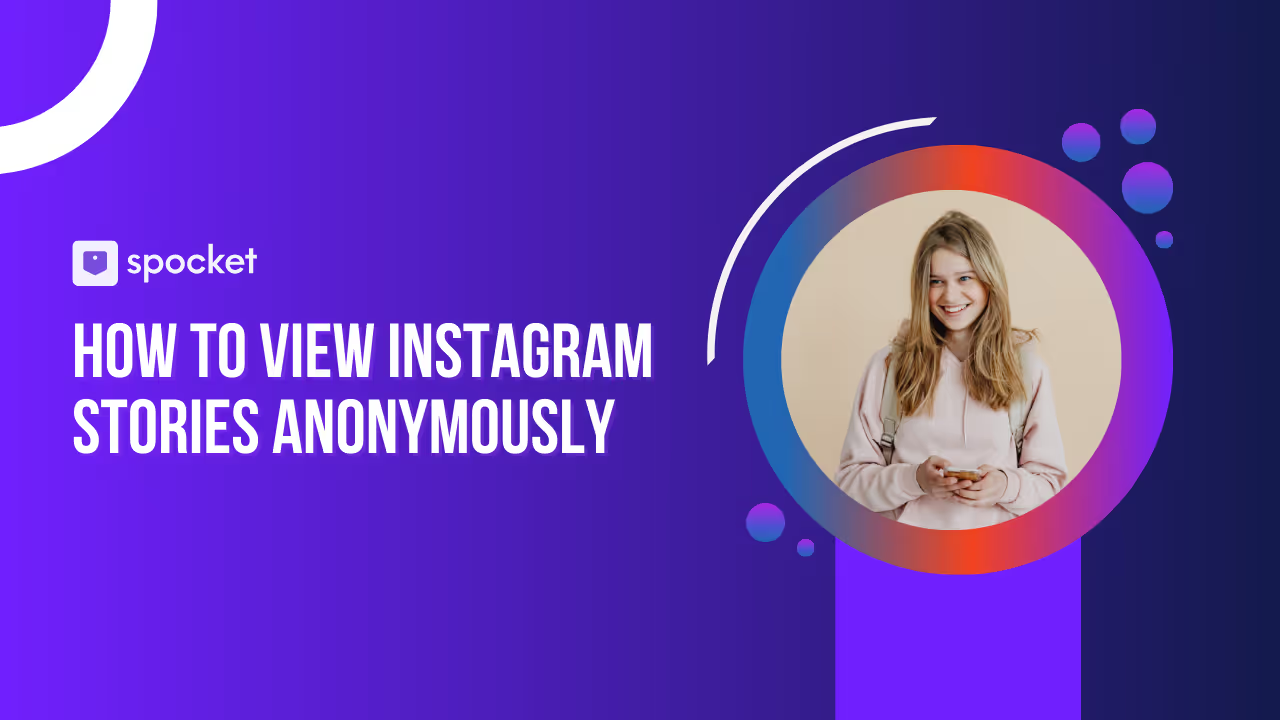What Is Usenet?
Discover what Usenet is, how it works, and why it’s still relevant in 2025. Learn about its unique privacy features, speed, content access, and how to get started.


If you've ever heard of Usenet and wondered what it actually is, you're not alone. Usenet is one of the internet’s oldest communication systems, dating back to 1979. Think of it as the granddaddy of online communities—long before social media and forums, it was where tech enthusiasts, academics, and hobbyists came together to share information, discuss niche topics, and exchange files.
Despite the rise of modern alternatives like Facebook, Reddit, and Twitter, Usenet remains a unique, powerful tool for certain communities. Why? Because it offers something other platforms don’t—complete privacy, no algorithms deciding what you see, and access to a treasure trove of archived content. In 2025, it’s still going strong, largely due to its ability to provide a more secure and decentralized way of communicating online.
So, let’s dive into what makes Usenet tick and why it’s still worth exploring today.
The History of Usenet: From Bulletin Boards to Modern Newsgroups
Usenet isn’t a recent creation—it’s been around since 1979! Back then, it was just a simple way for academics to share research and post news. Created by two computer science students, Tom Truscott and Jim Ellis, Usenet started as a humble text-based platform that allowed users to send messages across different systems. Fast forward to the 80s, and it was the go-to platform for anyone who wanted to discuss everything from science to the latest pop culture trends.
The Early Days of Usenet (1979-1985)
When Usenet first launched, it wasn’t much more than a new way for universities to communicate. The original purpose was to share news and academic articles over a system called UUCP (Unix-to-Unix Copy Protocol). But as soon as it hit the public, it exploded. Usenet quickly became a place where discussions and ideas flourished. People from all over the world connected through "newsgroups"—virtual communities based around specific topics or interests. From the start, it was clear that Usenet wasn’t just for professionals; it was a place for anyone with a computer and an internet connection to jump in.
The Growth of Usenet (1985-2000)
As the internet grew in the 90s, so did Usenet. The platform became home to thousands of newsgroups covering almost every conceivable topic. From tech enthusiasts discussing the latest software to hobbyists swapping tips about photography, Usenet provided a space for everyone to have their say. What made it stand out was its decentralization—there wasn’t just one website or company hosting it all. Instead, Usenet lived across multiple servers, with content being replicated and shared worldwide. It was like the internet's early "wild west" where the rules were made by the users themselves.
Decline and Resurgence (2000-2025)
By the early 2000s, Usenet began to feel the heat from new technologies. The rise of the World Wide Web, social media platforms, and easy-to-use forums caused many to leave Usenet behind. But despite this decline, Usenet wasn’t dead. In fact, it found a new audience in the mid-2000s. Privacy-focused individuals and tech enthusiasts rediscovered Usenet’s ability to offer anonymity and uncensored access to a wide range of content. Today, Usenet is still going strong in niche communities, proving that sometimes, older technologies are still the best for certain needs.
How Usenet Works: Decoding the Technical Backbone of Usenet

Usenet isn't just another online forum—there's some fascinating tech behind it that makes it tick. Understanding how Usenet works gives you a clearer picture of why it's so reliable and secure. From its decentralized structure to its use of newsgroups and specialized protocols, Usenet is a unique beast in the world of online communication. Let's break it down.
Understanding Newsgroups and Their Structure
At its core, Usenet operates through newsgroups. These are like forums or message boards, but instead of being hosted on a central platform, they exist across multiple servers. Each newsgroup focuses on a specific topic—whether it's technology, politics, or even obscure hobbies like stamp collecting. Newsgroups are organized in hierarchies (such as comp., rec., or sci.*) to make it easier for users to navigate the vast sea of content.
What makes newsgroups unique is that they're not owned by a single entity. They are distributed across servers worldwide, meaning content doesn't live in one place. Each time you access a newsgroup, you're essentially connecting to a network of servers that have replicated the data for you to read. This decentralized nature is one of the key reasons Usenet is so robust—content isn't controlled by any single company, giving users a sense of freedom and privacy.
NNTP and News Servers: How Usenet Transfers Data
Now, let's get a little technical. The backbone of Usenet's operation is the Network News Transfer Protocol (NNTP). Think of NNTP as the postal service for Usenet. It’s the protocol that helps transfer messages between different news servers. When someone posts a message in a newsgroup, it gets sent to the nearest news server. From there, the message is passed along to other servers, where it gets replicated for users to access.
News servers play a crucial role in Usenet's infrastructure. They store and index content, ensuring it’s accessible to anyone connected to the network. The retention period, which varies between providers, determines how long articles are stored before being deleted. This means that if you're using Usenet, you're not just getting the latest content; you also have access to a massive archive of older posts, which is a huge draw for users looking for niche, hard-to-find information.
Accessing Usenet: Newsreaders and Clients
To access Usenet, you’ll need a newsreader. A newsreader is essentially an app or software that lets you read, post, and manage messages on Usenet. Popular newsreaders like SABnzbd, NZBGet, and Newsbin Pro allow you to search newsgroups, download content, and even automate some processes. These apps connect to news servers using NNTP, pulling down messages and files so you can read or download them directly to your computer.
A big part of Usenet's appeal is the ability to download binary content, like software, videos, and music. Binary files are encoded and split across multiple parts to make them easy to transfer over the network. A file might be split into hundreds of small chunks, and the newsreader will automatically reassemble it for you when you download it. The process is similar to how torrents work, but with a couple of key differences—such as greater privacy and more reliable access to old files.
Getting Started with Usenet in 2025: A Beginner’s Guide
Starting with Usenet may seem daunting, especially if you're new to the world of newsgroups, servers, and newsreaders. But don’t worry! It’s easier than it sounds. In this section, we’ll guide you through the steps to get you up and running with Usenet in no time, covering everything from selecting a provider to navigating the vast sea of newsgroups.
Choosing a Usenet Provider
The first step in getting started with Usenet is selecting the right provider. A Usenet provider is a service that gives you access to the network, allowing you to connect to newsgroups, download content, and post messages. When picking a provider, there are a few things you’ll want to consider:
- Retention: This refers to how long content stays on the server. If you’re after access to old content, look for a provider with high retention (think 1,000+ days).
- Speed: Usenet can offer lightning-fast download speeds, but only if you choose the right provider. Check out reviews to find providers with good server speeds and reliable connections.
- Privacy & Security: Usenet is known for being private, but some providers offer additional security features like SSL encryption or VPN support. Choose a provider that respects your privacy, especially if you plan to use Usenet for sensitive content.
Some of the top Usenet providers include UsenetServer, Newshosting, and Easynews. These services vary in pricing, retention, and features, so take the time to read through reviews and pick the one that best suits your needs.
Setting Up Your Newsreader
Once you’ve chosen a provider, it’s time to set up your newsreader. A newsreader is the tool that allows you to connect to Usenet, browse newsgroups, and download files. The process is fairly simple, and here’s a quick step-by-step:
- Download and Install: Choose a newsreader like SABnzbd or NZBGet (these are great options for beginners) and download it from the official website. Both are free to use, with paid versions available if you need extra features.
- Configure Your Newsreader: Open the newsreader and enter your Usenet provider’s server details, which can be found in your provider’s welcome email. You’ll need to input things like the server address, your username, and your password.
- Set Up SSL Encryption: For added privacy and security, enable SSL encryption. This ensures that your connection to the server is encrypted, making your activity harder to trace.
- Test Your Connection: Before diving into downloading, test your connection to make sure everything is working. Most newsreaders have a built-in feature to do this.
Once your newsreader is set up, you’re good to go! You can now browse newsgroups, post messages, and download files. The setup process might feel like a bit of a learning curve at first, but once you’re up and running, it’s smooth sailing.
Navigating Newsgroups and Finding Content
With your newsreader set up, you’ll want to know how to find the content you’re looking for. Usenet is home to millions of messages, so navigating through the newsgroups can be a bit overwhelming. Here are some tips to help you get started:
- Browse Newsgroups: Most newsreaders have an integrated search function that allows you to browse newsgroups by category. Categories include topics like technology, music, movies, and more. You can also find specialized groups for hobbies, rare content, and much more.
- Using NZB Files: If you’re looking to download specific content, NZB files are your friend. These are like a map for your newsreader, telling it where to find and download particular files from the server. You can find NZB files on sites like NZBIndex or Binsearch. Simply download the NZB file and load it into your newsreader to begin the download process.
- Search for Content: If you’re looking for something specific, use your newsreader’s search feature. Newsreaders allow you to search within specific newsgroups or across all of them. If you know the name of the content you're looking for, type it into the search bar, and the newsreader will pull up results for you.
Tips for Effective Usenet Use
- Leverage Retention: If you want access to old posts, make sure your provider has a high retention rate. This is especially useful for accessing archived content.
- Automate Downloads: Many newsreaders allow you to automate the download process using scripts or automation features. This is particularly useful if you want to grab large files or set downloads to run in the background.
- Stay Secure: Always use SSL encryption for secure browsing, and consider using a VPN to further protect your privacy.
Starting with Usenet is straightforward once you get the basics down. With the right tools and a bit of patience, you can access a world of content that’s unavailable anywhere else. Now that you know how to get started, let's dive into how Usenet stacks up against modern alternatives like torrents and streaming services.
Usenet vs. Modern Alternatives: How Does Usenet Compare with Torrents and Streaming Services?
When it comes to online content sharing, Usenet, torrents, and streaming services all have their pros and cons. But how do they actually stack up against one another? Let’s break down the key differences between Usenet and the modern alternatives like torrents and streaming, focusing on privacy, speed, and content variety.
Privacy and Anonymity: Why Usenet Beats the Rest
One of the biggest advantages of Usenet over torrents and streaming platforms is privacy. When you use Usenet, your internet provider and third-party entities can’t easily track your activity. Here’s why:
- Usenet: Usenet is decentralized, meaning there’s no single entity tracking your downloads or posts. By using SSL encryption and a VPN, you can ensure that your activity is completely private. Your IP address stays hidden, providing an extra layer of security.
- Torrents: While torrents can also be used anonymously with a VPN, they’re still much more traceable. Torrent trackers are generally centralized, and your IP address is visible to others sharing the file. This can raise privacy concerns, especially if you're downloading files that could be subject to copyright enforcement.
- Streaming Services: Platforms like Netflix, Hulu, and YouTube don’t focus on privacy. They track your viewing habits, and your account is tied to your personal information. While streaming is convenient, it doesn't offer the same level of anonymity that Usenet provides.
If privacy and anonymity are important to you, Usenet is the clear winner.
Speed and Reliability: Why Usenet is the Fastest
Usenet is known for its speed, often outperforming torrents and streaming services in certain scenarios. Here’s why:
- Usenet: With a reliable Usenet provider, you can experience incredibly fast download speeds. Usenet servers don’t rely on peers for sharing files, which means you won’t be stuck waiting for other users to seed the file. With high-quality providers offering unlimited downloads, Usenet gives you the most consistent and speedy experience.
- Torrents: The speed of torrents largely depends on the number of seeders (people who share the file) and leechers (people downloading the file). If a torrent doesn’t have enough seeders, your download speed will suffer. Plus, since you're downloading from multiple users, the speed can fluctuate, making the process unreliable at times.
- Streaming Services: While streaming services like Netflix or YouTube offer instant access to content, your internet speed and the service’s server load can impact video quality. Streaming platforms will adjust the video quality depending on your bandwidth, so you might end up with lower resolution if your connection isn’t fast enough.
In terms of consistency and speed, Usenet wins out—especially if you’re downloading large files or accessing older content.
Content Access and Variety: Why Usenet Offers More Than You Think
When it comes to content, Usenet, torrents, and streaming services each have their own strengths. But here’s why Usenet stands out:
- Usenet: One of Usenet’s unique advantages is the massive archive of content available. Whether you're looking for rare old movies, niche books, or vintage software, Usenet has it. With a simple search in your newsreader, you can find almost anything you want—often from years or even decades ago. Plus, with Usenet’s retention system, you can access articles and files that have been online for a long time.
- Torrents: Torrents also offer a large selection of content, but the availability depends on the popularity of the file. The downside is that torrent trackers can sometimes be taken down, and you might lose access to certain files. Furthermore, torrent sites are often filled with advertisements or even malicious files, so you need to be extra cautious.
- Streaming Services: Platforms like Netflix, Amazon Prime, and Hulu are great for on-demand content like movies, TV shows, and documentaries. However, the variety is limited by licensing agreements, and you’ll need to pay for a subscription to access their content. Unlike Usenet, streaming services don't have archives, so you can’t go back and access older content without it being removed from the platform.
If you're looking for access to an expansive, uncensored library of content (including rare, out-of-print media), Usenet is the clear winner. You won’t have to worry about it disappearing from a service or being restricted by region or licensing issues.
Conclusion: Is Usenet Still Worth Using in 2025?
Usenet continues to hold its ground as a valuable tool in 2025, offering unique advantages over modern alternatives like torrents and streaming services. With its emphasis on privacy, high-speed downloads, and vast content archives, Usenet remains an excellent choice for users who value security and uncensored access to a wide range of content. Whether you're looking for rare media, niche discussions, or just a more private way to share and receive information, Usenet stands out as a robust platform.
While newer technologies have certainly changed the landscape, Usenet’s decentralized nature, combined with its privacy benefits, ensures it remains a relevant and powerful option for specific communities. So, if you’re someone who prioritizes privacy and access to a broad library of content, Usenet is definitely worth considering in 2025.
FAQs About Usenet
What is Usenet?
Usenet is a decentralized network of discussion groups, known as newsgroups, where users can post messages and share files. Established in 1979, it operates independently of the World Wide Web, using the Network News Transfer Protocol (NNTP) to distribute content across various servers worldwide. This structure allows for a vast array of topics and a high degree of privacy and autonomy for its users.
Is Usenet still active?
Yes, Usenet remains active in 2025, with millions of messages posted daily across over 100,000 newsgroups. Its decentralized nature and focus on privacy continue to attract users, particularly those interested in niche discussions and accessing archived content. While not as mainstream as modern forums, Usenet maintains a dedicated user base.
How do I access Usenet?
To access Usenet, you need a newsreader application and a subscription to a Usenet provider. The newsreader connects to the provider's servers, allowing you to browse newsgroups and download content. Popular newsreaders include SABnzbd and NZBGet, while providers like Newshosting and UsenetServer offer various plans with different retention rates and features.
Is Usenet free?
While Usenet was originally free, most reliable access now requires a paid subscription. Prices typically range from $8 to $15 per month, offering benefits like high retention rates, fast download speeds, and secure connections. Free providers exist but often come with limitations in speed, retention, and security.
Is Usenet legal?
Usenet itself is legal and serves as a platform for discussion and file sharing. However, the legality of content shared on Usenet depends on the material. Sharing copyrighted content without permission is illegal in many jurisdictions. Users should ensure they comply with local laws and use Usenet responsibly.
Launch your dropshipping business now!
Start free trialRelated blogs

Anonymous Instagram Story Viewer: How to View Instagram Stories Anonymously
Learn how to view Instagram stories anonymously without leaving traces. Get practical methods that work in 2026, plus safety tips and what to avoid. Stay private while browsing.

Tech in Beauty Industry
Explore the latest tech innovations in the beauty industry, including AI, AR, and smart devices, shaping personalized beauty experiences and market trends in 2025.

How to Turn off Gemini
Learn step-by-step how to turn off Gemini on Android, Gmail, Google Assistant, and more. Discover privacy tips, alternative digital assistants, and how to remove all Gemini activity for full control.



































